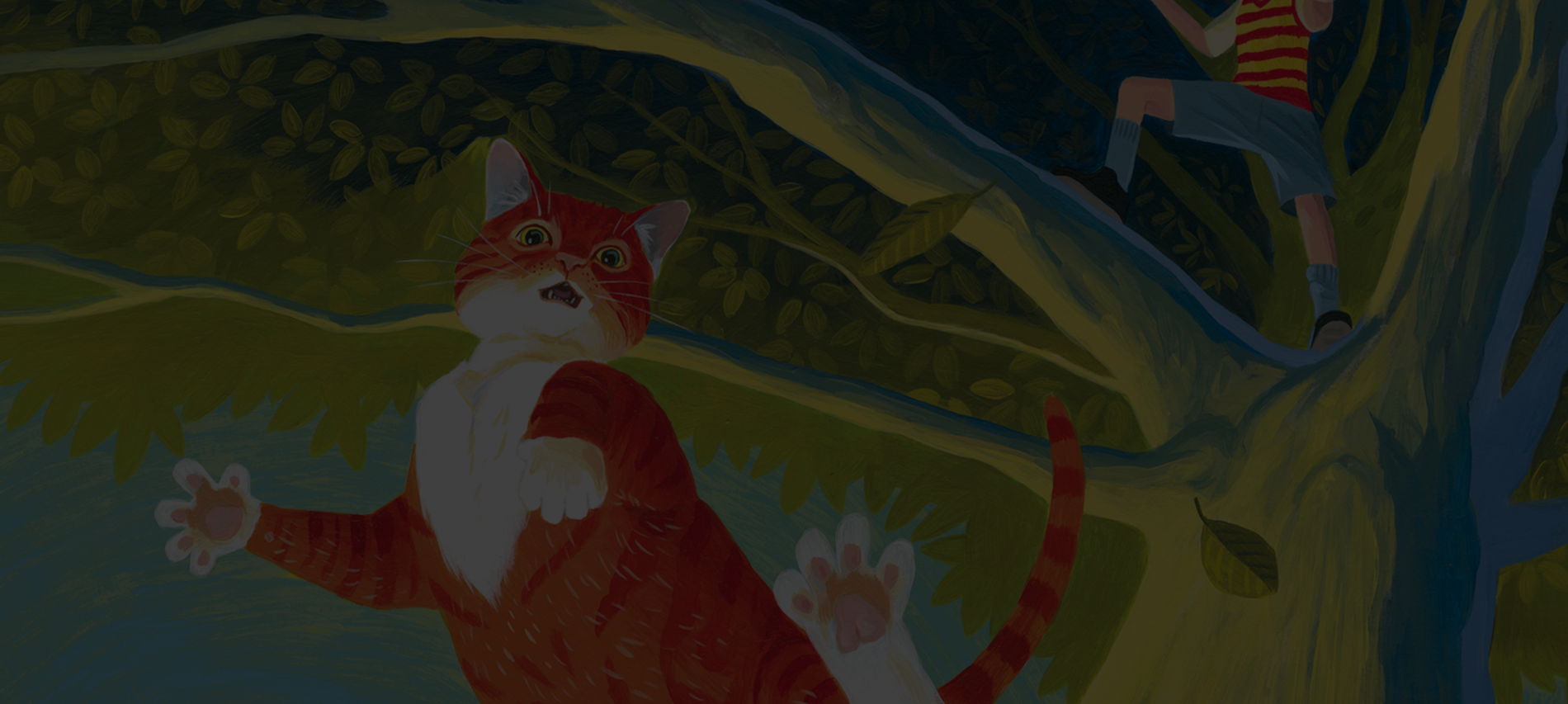Author Michael Morpurgo is best known for his children’s work War Horse that was released in the year 1982.
With a series of books that explore well-known stories from myths and epics, but with a magical twist, Morpurgo’s writings have been termed as “magical storytelling”.
With multiple literary awards to his name, Michael Morpurgo has written a wide range of fascinating books for children in a literary career spanning over decades.
Here are a few facts you may not have known about this amazing writer!





We bet you can’t wait to grab your copies of Michael Morpurgo’s amazing books after reading this. Don’t forget to tell us which ones you liked best!
(Author image credit: https://ichef.bbci.co.uk/images/ic/1920×1080/p01gzy0x.jpg)
Tag: fantasy
‘This is no ordinary cat’: The Nine Lives of Montezuma — An Excerpt
As the famous saying in English tells us every cat has nine lives, Michael Morpurgo’s The Nine Lives of Motenzuma proves that cats indeed are survivors in this big, bad world.
Montezuma, a ginger cat, is anything but your ordinary furry friend. As soon as he is discovered, the characters in the story realise that this cat is not a normal alley cat but a creature with magical powers, much like its namesake, the survivor King of the Aztec.
Here’s a short excerpt from the book.
He found Montezuma crouching at the end of a long tapering branch that hung out over the pond. The branch looked thick enough and safe enough near the trunk, but the further away it stretched the more fragile it looked. Matthew stood in the fork of the tree and considered all the alternatives, trying to ignore the warnings and advice from below. He could not climb out along the branch to Monty – the branch would not take his weight. He needed a net to throw out over the cat, but there was no-one who could bring a net up to him – neither his father nor his mother could climb trees – at least he had never seen them. He would have to talk the kitten back to safety, that was the only way.
‘Monty,’ he said in as soothing a tone as he could manage. ‘It’s me, Monty. You can’t stay out there all day. You’ll be all right now. I’ll take you down. Come on then, come on. I won’t hurt you.’
But the kitten crouched low, glued to the branch like lichen. He blinked back at Matthew, swallowing hard and mewing weakly every so often. Matthew talked on in a consoling, sympathetic tone; but he received no encouragement from Montezuma who never moved a muscle.
From down below his father was shouting up to him. ‘Can’t you get him down?’ A question which Matthew didn’t feel he could answer politely.
‘Fire Brigade,’ his mother shouted up. ‘What about the Fire Brigade?’ They looked so small down there in the yard. Matthew felt his parents had been getting smaller in recent years, but he had never seen them this small.
‘Not yet,’ Matthew shouted back. ‘Not yet. I’ll try one more thing.’
‘Do be careful, dear. Do be careful.’ His mother’s voice sounded hysterical, but then it always did whenever she shouted.
Matthew held onto the branch above him and edged out onto Montezuma’s branch, stepping sideways like a cautious crab. The two branches ran parallel for a few yards and then the upper one that Matthew was holding onto came to an abrupt halt. Matthew went as far as he could and then released the upper branch. For a moment he stood balancing with nothing to hold onto. The branch swayed underneath him and he lowered himself carefully until he was sitting astride the branch, his hands clasping it firmly in front of him. Like this he pulled himself along inch by inch until he knew he could go no further. The kitten was still well out of reach.
‘That’s far enough.’ His father’s shout was sharp. ‘No further. That’s far enough. The branch won’t take the weight. No further.’
Matthew knew he was right, but he was nearly there and it was only a few more feet. He lay now flat along the branch gripping behind with his feet, his hands holding on in front of him. ‘Come on Monty, come on down. Please, there’s a good kitten. Come on now.’ But as he released one hand to reach out towards the cat, he lost his balance and had to grab at the branch suddenly to retrieve himself. Alarmed, the kitten backed away, lost his grip and tumbled down through the air towards the pond. Matthew watched for the splash and saw his father running down across the yard towards the pond. The ducks evacuated the pond noisily, leaving Matthew’s father alone in the pond striding waist deep to the spot where Montezuma had fallen in. Matthew waited, closed his eyes and prayed. When he opened them his father was shouting up at him and laughing, holding up a dripping kitten. ‘Got him. He’s all right. The little divil’s still breathing.’
By the time Matthew had made the descent, his father was out of the pond and had pulled off his shoes. He was sitting on the ground taking his socks off and wringing out the water. ‘Your father will catch his death,’ said Matthew’s mother, who was holding on to Montezuma in a vice-like grip. ‘Here’s your Monty,’ she said. ‘You take him. And for God’s sake hang on to him. You worry me to death, you two. First you go climbing up trees and then he goes jumping into cold ponds – at his age. You should know better. Could have killed you both and all for what? For a kitten.’
‘For Monty,’ said Matthew, rubbing the kitten dry with the tail of his shirt. ‘This is no ordinary cat, you know. Can you imagine my Dad jumping into a pond to rescue any other cat? He’s dropped plenty of kittens into this pond, but this is the first one he’s ever pulled out and that’s a fact.’
‘And the last,’ said his father wriggling his wet toes. ‘Definitely the last.’
Find out which adventure Montezuma encounters next in this enchanting book by Michael Morpurgo!

Decoding the Panchatantra: 6 Little-Known Facts About the Evergreen Animal Fables
Originally composed in Sanskrit, the Panchatantra is one of the oldest collections of fables in the world. Devised for the purposes of teaching three dull-witted sons of a king, it strives to convey the principles of kingship and some valuable life lessons.
Nilanjana Roy, author and journalist, notes in her introduction to the refreshing new translation of the Panchatantra: “Stories are alive and they like to travel.” In fact, the more brilliant the stories the wider their reach. And therein lies the magic of the Panchatantra – it has hopped down and affected numerous centuries and generations!
Here are six little-known yet brilliant facts about the Panchatantra!
Who wrote the Panchatantra? Vishnusharma was renowned far and wide for his learning and his skill as a teacher, and was therefore given the task of educating the sons of the king and making them fit to rule. He was eighty years old at the time yet accepted the challenge, and devised the stories of the Panchatantra to teach the princes the rules of kingship and the principles of government.
Vishnusharma was renowned far and wide for his learning and his skill as a teacher, and was therefore given the task of educating the sons of the king and making them fit to rule. He was eighty years old at the time yet accepted the challenge, and devised the stories of the Panchatantra to teach the princes the rules of kingship and the principles of government.
When was the Panchatantra composed? The exact date of its composition is uncertain. We do know, however, that it was translated into Pahlavi in 550 CE. Thus, we know with certainty that the Panchatantra must have been composed before this date.
The exact date of its composition is uncertain. We do know, however, that it was translated into Pahlavi in 550 CE. Thus, we know with certainty that the Panchatantra must have been composed before this date.
Where was the Panchatantra composed? We do not know the exact location of this city, or even if it was a real place. The Panchatantra only states, rather vaguely, that Mahilaropya was the capital city of ‘a kingdom in the south’.
We do not know the exact location of this city, or even if it was a real place. The Panchatantra only states, rather vaguely, that Mahilaropya was the capital city of ‘a kingdom in the south’.
The Structure of the Panchatantra The original Panchatantra is a mixture of verse and prose. The stories are narrated mainly in prose, but the lessons derived from the tales are usually given in verse form. Panchatantra takes its audience into a series of stories, deeper and deeper, from one level to the next.
The original Panchatantra is a mixture of verse and prose. The stories are narrated mainly in prose, but the lessons derived from the tales are usually given in verse form. Panchatantra takes its audience into a series of stories, deeper and deeper, from one level to the next.
Characters in the Panchatantra The author has used a device to make it easy for his audience to understand the nature of his characters, and that is their names. He has given his characters, whether human or animal, names that highlight certain aspects of their appearance or behaviour. Thus, we have Pingalaka the lion, whose name means ‘one who is red–gold’, named for his fiery coat!
The author has used a device to make it easy for his audience to understand the nature of his characters, and that is their names. He has given his characters, whether human or animal, names that highlight certain aspects of their appearance or behaviour. Thus, we have Pingalaka the lion, whose name means ‘one who is red–gold’, named for his fiery coat!
Translations and Retellings The subject matter of the Panchatantra and its delightful tales made it a very popular text. Its stories, carried far and wide by travellers and merchants, spread rapidly across the world.
The subject matter of the Panchatantra and its delightful tales made it a very popular text. Its stories, carried far and wide by travellers and merchants, spread rapidly across the world.
Want to soak in the magic of the Panchatantra? Relive the joy of this enduring classic, translated brilliantly from the original by Rohini Chowdhury and now in a classic keepsake edition – here!









